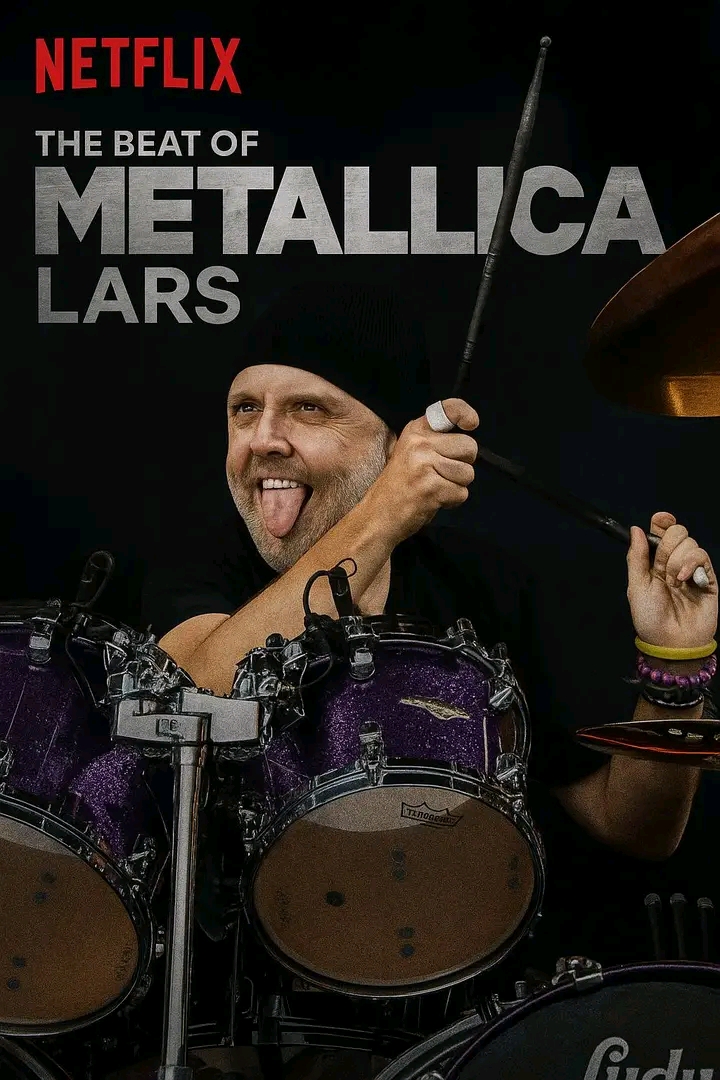**Netflix Presents: “The Beat of Metallica – Lars Ulrich”**
*A Thrilling Journey Through Rhythm, Rebellion, and Legacy*
In the annals of heavy metal, few names resonate with the seismic force of Metallica. And at the heart of that thunderous pulse sits Lars Ulrich—drummer, co-founder, and the relentless engine behind one of the most influential bands in music history. Netflix’s upcoming documentary, *The Beat of Metallica – Lars Ulrich*, promises an unflinching, high-octane exploration of the man whose rhythm shaped a genre and whose vision helped forge a cultural empire.
This isn’t just a biography. It’s a cinematic autopsy of obsession, ambition, and the cost of immortality. From the gritty garages of 1981 Los Angeles to sold-out stadiums across the globe, the film traces Ulrich’s evolution from a tennis-obsessed Danish teen to the architect of thrash metal’s golden age. Archival footage—never-before-seen demos, backstage meltdowns, and raw studio sessions—anchors the narrative, while new interviews with James Hetfield, Kirk Hammett, Robert Trujillo, and a surprising roster of admirers (from Dave Grohl to classical composers) unpack Ulrich’s polarizing genius.
The documentary doesn’t shy away from controversy. The Napster lawsuit of 2000, once a lightning rod for fan backlash, is revisited with fresh context: Ulrich’s unapologetic defense of artistic ownership, framed not as greed but as a desperate stand against an industry in freefall. “I wasn’t fighting for money,” he reflects in a rare candid moment. “I was fighting for control—of our work, our legacy, our future.” The film juxtaposes this with the irony of Metallica’s later streaming dominance, a full-circle redemption arc that feels less like hypocrisy and more like survival.
Musically, *The Beat of Metallica* is a masterclass in rhythm as rebellion. Ulrich’s drumming—often criticized for its rawness—is celebrated here as a deliberate rejection of polish. Directors capture him dissecting “Dyer’s Eve” in the studio, revealing how his off-kilter fills and relentless double-kick patterns weren’t flaws but weapons. “Precision is boring,” he smirks. “I wanted to sound like the world was ending.” The film’s sound design mirrors this chaos: sub-bass rumbles sync with heartbeat-like snare hits, turning interviews into near-concert experiences.
But the soul of the documentary lies in its quieter revelations. Ulrich’s strained relationship with his jazz-legend father, Torben, unfolds as a Greek tragedy—approval withheld, expectations weaponized. A 1991 voicemail, played in full, captures Torben’s icy critique of *The Black Album*: “You’ve gone commercial, Lars. You’ve lost the fire.” The younger Ulrich’s silence in response speaks volumes. Later, reconciling over *Load*’s experimental sprawl, father and son share a fragile truce—a reminder that even metal gods bleed.
Legacy, the film argues, isn’t just about platinum records. It’s about influence. Clips of young drummers mimicking Ulrich’s unorthodox grip flood social media montages, while a São Paulo favela band covers “Battery” on oil drums. The global reach of Metallica’s sound—born in a suburban bedroom—becomes a testament to rhythm as a universal language of defiance.
As the credits roll over a blistering live rendition of “One” from Mexico City, 1993, one truth lingers: Lars Ulrich didn’t just keep time. He weaponized it. *The Beat of Metallica* isn’t a love letter—it’s a war cry. And in an era of algorithmic playlists and fleeting trends, it dares to ask: What happens when the beat stops? For Ulrich, the answer is clear. It echoes. Forever.



